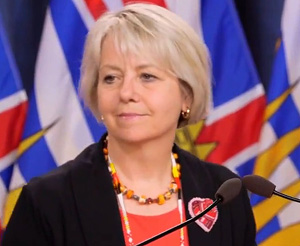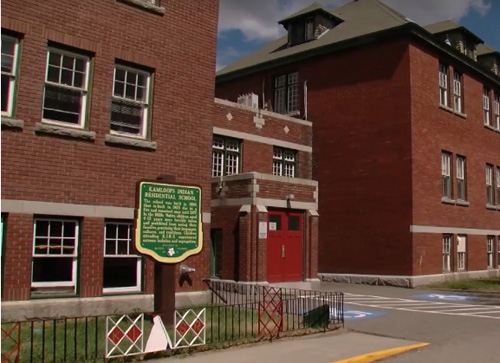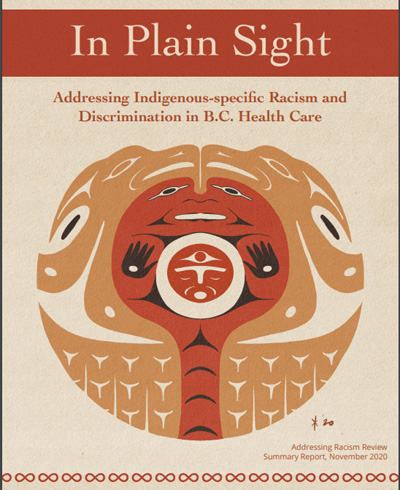
Monday May 31, 2021 | VICTORIA, BC
by Mary P Brooke, Editor | Island Social Trends
Remarkable words from BC’s top doctor came today ahead of the start-of-week COVID update.
Provincial Health Officer Dr Bonnie Henry offered with passion regarding the Kamloops Indian Residential School discovery of 215 children’s bodies in a mass grave: “This is something we did to First Nations children and families, we are all implicated in these tragedies,” says Dr Henry.
She echoed Premier John Horgan’s being “horrified and heartbroken” (as in the Premier’s statement on May 28) but Dr Henry’s holistic perspective branded with her own style of activist passion was searing. Likely anyone who was listening today at 3 pm stopped multi-tasking and truly took note.
During her far-reaching remarks that she packed into about three and-a-half minutes, Dr Henry further implored British Columbians to “not get stuck in our shame and grief” but to take action going forward.
Her remarks were riveting and quite apt to be coming from the highest level of public health authority in this province. Here is the transcript:
“I would like to start today’s briefing by pausing to acknowledge and to remember and mourn the children whose remains were found at the former Kamloops Indian Residential School. I struggle to find words to express my horror and grief at the discovery of these remains of 215 First Nations children.
I realize it’s because there are no words that can do justice to those children and the countless others who died alone and scared, far from home, far from the families who loved them. There are no words that can make right a deliberate and intentional system that was designed to assimilate and extinguish Indigenous peoples. So today I don’t offer words, but rather my renewed commitment to action, that arrests and disrupts our deeply-rooted ideology of settler supremacy. We must make no mistake, that while these deaths happened in the past, our system and laws continue to perpetuate racism and discrimination that hurts Indigenous peoples in countless ways.
I’ve stood at this podium many times as an expert in public health. And today I am here again, as a humble learner in reconciliation and decolonization. I am so so grateful to the First Nations and Métis leaders who continue to share their wisdom with me as I personally continue to work to deepen my understanding of reconciliation and the ways I can work to advance it.
This is hard work that requires us — leaders and settlers in our system — to find the courage to accept that it is our history of colonization. It’s not something that happened to First Nations children and families, this is something that we did to First Nations children and families. We are all implicated in this tragedy.
In order to honour the strength and resilience of survivors and descendants of Indian Residential Schools, and the memories of all those who never returned home, each and every one of us needs to ask ourselves: ‘What meaningful actions can we take to uphold the rights of Indigenous peoples?’
I’m very grateful that I have a team that is committed to this and we will be coming together once again reflecting on the many paths that we have forward: the Truth and Reconciliation Commission calls to action, the Missing and Murdered Indigenous Women and Girls calls for justice, the In Plain Sight recommendations that we received earlier this year, and the Declaration on the Rights of Indigenous Peoples Act.
And we will hold ourselves accountable to an ongoing process of reconciliation that we’ve tried to mirror through this pandemic.
We cannot get stuck in our shame and grief, but rather commit to ourselves to one another, and to First Nations, Inuit and Métis peoples that we will delibreatley and intentionally take actions that will serve to heal rather than harm, from this day forward.”





